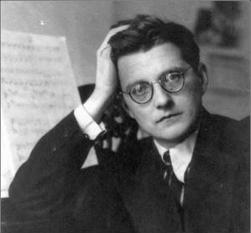Is It Time to Stop Calling Classical Music 'Relaxing?'
Classical music's ability to soothe the weary soul has been used to market everything from yoga classes to an endless supply of albums like "The Most Relaxing Classical Music in the Universe" and "Nature Sounds with Classical Music."
Some promoters say this is a good thing, and should be embraced in our distracted, stressed out world. But others argue that the recording industry and even radio stations have oversold the stress-buster angle, which feeds a misperception that classical is benign and boring.
We debate this marketing strategy with two guests. Patrick Castillo, a Brooklyn-based composer and writer, says that the relaxation message discourages engaged listening, and marginalizes great music that doesn't always soothe. "Active listening should be encouraged as a means of inspiring a visceral connection," Castillo tells host Naomi Lewin. "But I don't think 'classical music for relaxation' CDs are branded in that way. I think they are marketed more in the spirit of, 'this whole swath of music can exist unobtrusively in the background as you're going about your daily chores.'"
Castillo recently stirred up strong reactions on this topic in an editorial for Minnesota Public Radio. He argues that newcomers to the artform are given fewer opportunities to discover challenges like Shostakovich's string quartets, Messiaen's Quartet for the End of Time or Schulhoff's Sonata Erotica.
But Michael Morreale, a producer and blogger at CBC Music in Toronto, says that millions of listeners are actively seeking out relaxation in classical music. Morreale programs the CBC's Serenity Stream, a mix of calming classics that is among the network's most popular channels. "Classical music can be so many different things – it can pump you up, it can intrigue you, it can challenge you, it can introduce you to some new ideas," Morreale says. "But yes, a small piece of that pie is that classical music is great for relaxing you or helping you focus on something."
Morreale sees the Serenity Stream as a kind of "gateway drug" and notes that listeners who are turned on to Debussy's Clair de lune may go on to explore contemporary works by Arvo Part, Philip Glass or Steve Reich, for example.
Listen to the full segment above and tell us what you think below: How do you most listen to classical music? Is it okay to play it for relaxation?
